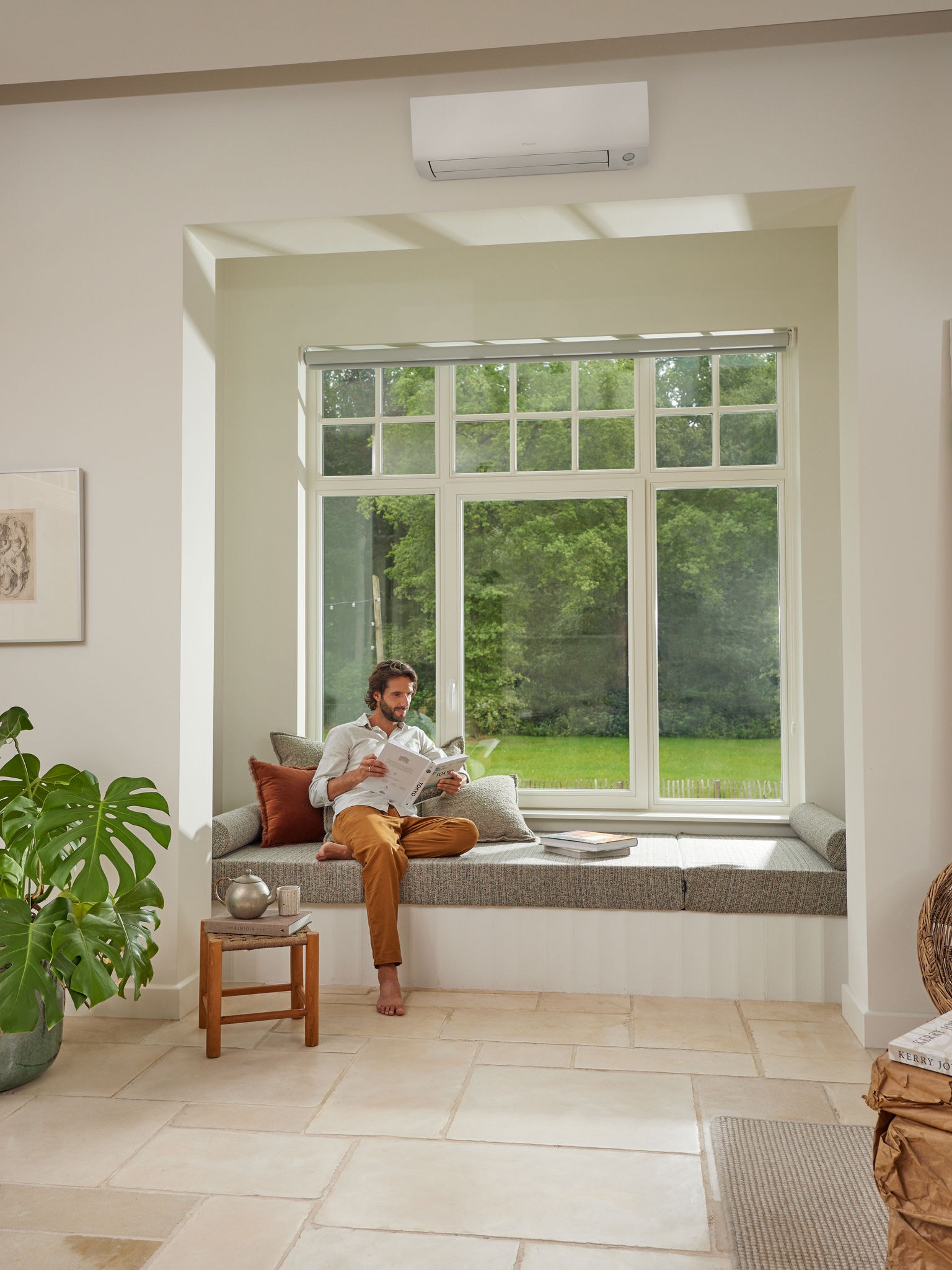What will a possible ban on conventional heating technology mean for you?
European governments are on a journey towards net zero, which includes moving away from conventional heating systems. Discover how this affects you.

There are many reasons to choose a heat pump. That’s why Daikin has created the whitepaper Drivers to Heat Pump Adoption by European Households, offering fact-based insights to help consumers make an informed decision. It explores key factors such as energy cost savings, government incentives, environmental impact, policy developments, and how heat pumps integrate with renewable energy solutions to future-proof homes.
In this article, we’ll focus on the potential phase-out of conventional heating technologies and what it means for homeowners considering a transition to heat pumps.
Efforts towards climate neutrality in Europe
European governments are moving towards meeting their net zero ambitions. More and more countries are pledging to achieve net zero emissions over the coming decades. These long-term targets can only be achieved by setting measurable short-term milestones, like replacing conventional heating systems with more sustainable solutions.
To help us reach climate neutrality, where how we live and work has minimal negative impact on the environment, we are going to require a radical change in the way our homes are built and heated. The International Energy Agency (IEA) reports that a vast majority of countries are set to implement zero-carbon-ready building codes by 2030. A zero‐carbon‐ready building is highly energy efficient.
It uses renewable energy directly or an energy supply that will be fully decarbonised by 2050, such as electricity or district heat. These buildings won’t need any extra modifications, as they will already be zero-carbon by 2050.
The European Commission hopes to ban the sale of boilers that use fossil fuels by 2029. This is part of the REPowerEU plan to improve energy efficiency and to speed up the transition to more eco-friendly fuel sources.
UK's milestones towards net zero
One of the UK government's milestones towards net zero is to have more zero-carbon-ready buildings. This means having more buildings that use renewable energy technologies such as heat pumps, solar panels, or rely on an energy source that can be fully decarbonised, such as electricity. It aims to ban new and replacement fossil fuel heating installations in existing properties in England from 2035. Off-gas grid properties with no suitable low-carbon heating solution are exempt from this measure.
Lower emissions from homes by 2025
In the UK, the government plans to implement a new initiative known as the Future Homes and Building Standard (FHS), which aims to guarantee that newly built houses have energy-efficient heating systems and are prepared for a future that is less reliant on fossil fuels.
The introduction of the FHS will ensure that from 2025, an average home will produce at least 75% lower carbon dioxide emissions than one built to the current energy efficiency requirements within Building Regulations.
The FHS legislation will considerably improve the energy efficiency standards for new homes in the long run, with homes being more environmentally friendly and affordable for consumers to heat, with low carbon heating and very high fabric standards.
In fact, homes built under FHS will be zero-carbon ready, becoming zero carbon homes over time as the electricity grid decarbonises, without the need for any costly retrofitting work.
Fossil fuel heating ban in new homes
Within a heating context, the UK’s FHS legislation requires new homes to be built without fossil fuel heating (like a gas boiler). The Scottish government has already passed a ban on gas boilers in all new residential and business buildings. The Scottish government aims to phase out new or replacement fossil fuel boilers in off-grid properties from 2028.


Heat pumps as the leading future-proof heating solution
For us to reach climate neutrality, we need to drastically rethink not just our attitude to how our buildings work, but how we live and work in the buildings that play a part in our daily lives. We can reduce heating needs by improving the way in which we insulate buildings, consider heating networks and renewable heat sources such as heat pumps.
This is a big shift in thinking that we cannot ignore. Across Europe, the movement towards phasing out fossil fuel heating is gaining momentum. Several countries are already taking proactive steps by either bringing in bans on fossil fuel usage for heating or bringing forward the enforcement dates of older bans. This exciting change highlights how important heat pumps are going to become as the leading, future-proof heating solution for our homes.
For detailed data, sources, and references, please refer to the full whitepaper (available for download in English).




